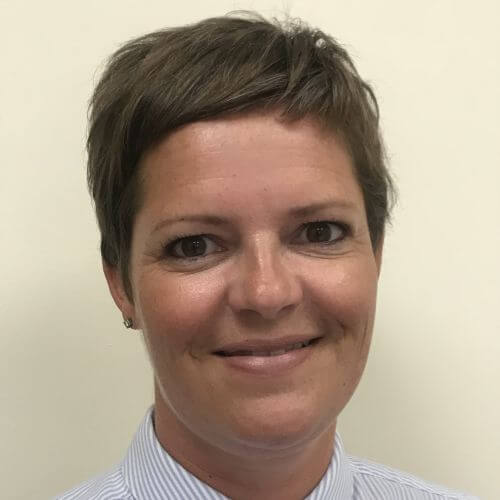CPD for teachers – Build your staff’s professional arrogance

Build the professional confidence of staff by discussing the weaknesses in your provision and giving teachers the power to change them…

- by Hannah Tudor

Have you ever worked with a teacher who wanted to be bad at their job?
One who woke up in the morning and looked forward to a day where the children in their class learnt nothing? No, me neither. We all get up in the morning to do the best job we can, and all development in schools must start with this basic, yet fundamental, principle.
‘Professional arrogance’ was a term coined by SLT members at the school I lead back in 2014, when the school had been judged to have ‘serious weaknesses’.
It’s worth noting that professional arrogance is more noticeable by its absence than its presence and it was definitely absent in our school at that time. We knew this because teachers were very unsure of how to teach. They doubted themselves constantly, even when children in their classes were making progress.
They were fearful of taking risks, assuming that risk would automatically mean failure. They were, perhaps understandably, fearful of any kind of monitoring.
Of striking interest to me was that, on top of this, the work-life balance of most of these teachers was woeful. They appeared to hold the belief that the harder they worked, the better the school would be and the more the children would learn.
Not only did they constantly doubt themselves, they were working themselves into the ground while doing so. What sort of culture creates teachers who think and feel like this?
Accountability and agency
I started looking at policies that drive teaching and learning and found that these often included statements that started with “the teacher will”. Let’s overlook for a moment the lack of focus on what the learners will be doing and assume that such policies were written to provide clarity of understanding and approach for all staff.
Despite this being the intention, it had partly led to teachers never questioning if what they were doing was the most effective way of teaching the children in their classes. There was little accountability or agency – they did what the policy told them, often without question.
We all know that the language we use shapes the culture that we work in. Language is very powerful – it can include or exclude, strengthen or weaken. At my school we now focus on the word ‘teaching’ and use it instead of ‘teacher’. This has created a very powerful shift in culture.
Schools that talk about the ‘quality of the teacher’ imply that provision is the result of an individual. A leader might say that provision is outstanding because the teacher is outstanding. How wonderful for that member of staff – they’re held up as the school’s pedagogical shining light and others flock to observe and be like them.
The message here, however, is that other staff are not as good as this individual and need to ‘be more like them’. This reduces the professional arrogance of the staff, who now know that they are not quite good enough and that to be outstanding, they must all teach like this one shining example of how to do it.
However, just as significant here is that the professional arrogance of the ‘shining light teacher’ isn’t necessarily strong either. They might become fearful that monitoring may show that they’re not as strong in the classroom as someone first suggested.
They might feel like they can’t discuss a lesson that went terribly with anyone on the staff because their colleagues might then feel that they are not as good at their job after all.
By adapting this scenario to look at the quality of the teaching, we start to feel a collective responsibility towards areas of the curriculum that we can all work together to improve and develop. Asking the question “How do we improve the teaching of reading across the school?” means that everyone is included and can contribute.
This builds professional arrogance based on robust professional dialogue and thorough evaluation of the current provision.
Exposing weaknesses
When it comes to monitoring, it is of course important – the job that we do is too important for it not to be monitored at all.
However, monitoring is about understanding the provision in a school, not judging it. It is what it is, and whether the staff are told that it’s rubbish or it’s outstanding, both messages are unlikely to promote the necessary motivation to improve it further.
We need to shrug off grades and keep them for our SEF and Ofsted. Monitoring is about finding out if the provision is good enough or not. If we want to promote arrogance in our staff, we need to own our weaknesses as a school and be able to bring them to a staff meeting and stick them at the top of the agenda.
It’s uncomfortable and can sometimes be painful, but professional arrogance can only grow by staff knowing what those weaknesses are and working together to play their part in improving them.
If true professional arrogance is to thrive, all staff need to be engaged and empowered to change the parts of your provision that are not working as well as they could be.
This is so important for many reasons but firstly, it stops leaders painting a ‘we know it all’ picture of pedagogy. I hate to break it to you, but no one knows it all, and no leader should ever put themselves in the dangerous position of thinking that they do. This weakens staff confidence and creates a culture of dependency.
Furthermore, it has a detrimental impact on the wellbeing of leaders – how can one person possibly have all of the answers?
Exposing weaknesses in a school’s provision to your team and posing thoughtful and sometimes naive questions is central to building the professional confidence of teachers. Leaders are a vital component in this – if you’re a leader, you’re the person that can make this happen.
Give your staff agency and the power to change the elements of your school’s practice that are not as strong. This will lead to shared ownership and everyone being clear about why certain things are taught as they are. Teachers will understand it because they’ve been involved in creating it.
It’s not rocket science, but it’s powerful stuff. Every teacher deserves to feel confident about what they do and every pupil deserves to be taught by someone who feels this way.
How to build teachers’ professional arrogance
- Take a fresh look at the policies in your school. Do they use the phrase “The teacher will” and are your teachers actually doing that?
- Language is powerful. Start to talk about ‘teaching’ and avoid talking about the ‘teacher’.
- Keep grades away from staff. They do not help to improve anything – keep them for your SEF and conversations with Ofsted and governors.
- Plan a staff meeting to discuss a particular area of provision. Bring books along and allow staff to share findings.
- If you are a senior or middle leader, do not profess to have all the answers. Leadership is about having enough answers to remain credible. Talk to others and learn from them just as they learn from you.
Hannah Tudor is headteacher at St Mary of Charity Primary in Faversham, Kent. Follow her on Twitter at @tudor_hannah.










